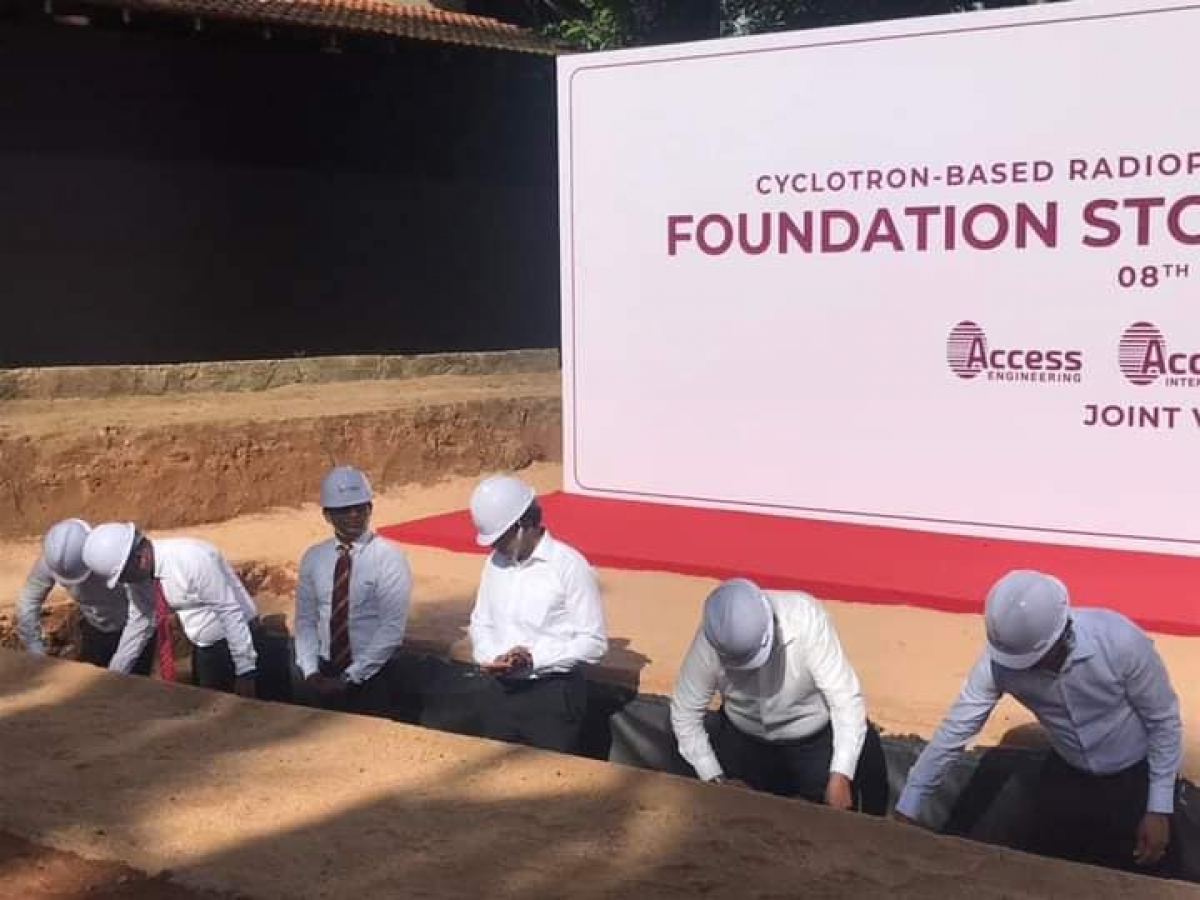Sri Lanka marked a significant milestone in its healthcare sector today (8 November) by laying the foundation stone for the country’s first Cyclotron-based Radiopharmaceutical Production Facility. This cutting-edge facility, aimed at advancing diagnostic capabilities for non-communicable diseases, is a collaborative effort between the Ministry of Health, the Sri Lanka Atomic Energy Regulatory Council (SAERC), Access Engineering, and Access International.
The facility is structured as a joint venture, with Access Engineering holding a 60% ownership stake, Access International (Private) Limited owning 20%, and both the SLAEB and the Ministry of Health each holding 10%. A special-purpose vehicle, Access Medical Tracers (Private) Limited, has been established to oversee the facility’s management.
The development cost of this state-of-the-art facility is estimated at $6.5 million. Once operational, it will produce fluorodeoxyglucose (FDG) locally, reducing Sri Lanka’s dependence on imported supplies of this crucial radiopharmaceutical.
Cyclotrons play an essential role in the production of radiopharmaceuticals, which are used in diagnosing non-communicable diseases like cancer and neurological conditions. FDG, a radioactive tracer used in positron emission tomography (PET) scans, is a simple sugar that mimics glucose, accumulating in high-metabolism cells, such as malignant cells. This accumulation allows PET scanners to detect energy emissions from FDG, creating detailed images of metabolic activity within the body.
FDG-PET scans are valuable for:
- Detecting and staging malignant lesions, including lung, breast, brain, colorectal, ovarian, and lymphoma cancers.
- Monitoring patient response to cancer therapies.
- Identifying early inflammation in diseases like vasculitis.










